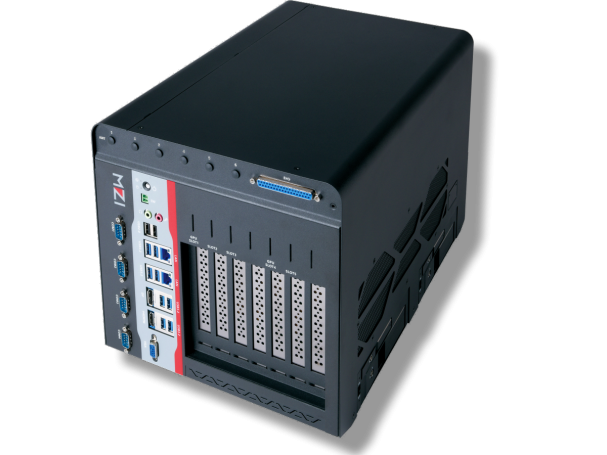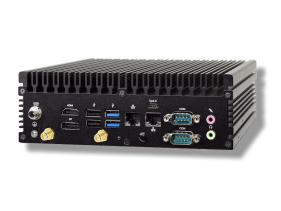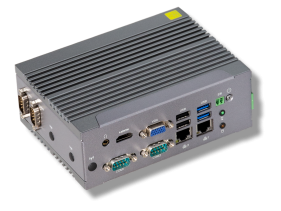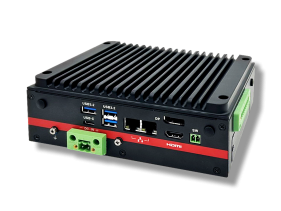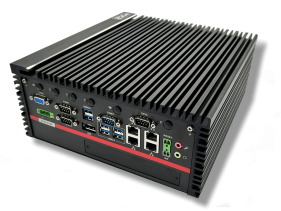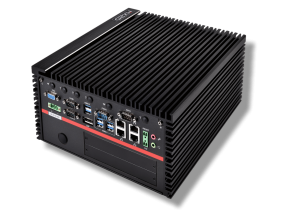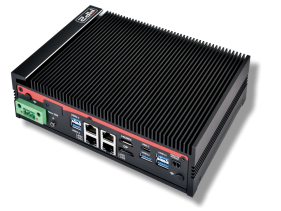MZ1



- Chipset INTEL R680E
- Processeur Core I7 ( Gen 13 ) / XEON
- Mémoire DDR 5 64GB MAX (ECC / Non ECC)
- 5 slots PCIe x16 ( 3 Gen 4 x 16 / 1 GEN 4 x8 )
- 4 SSD Hot swappable • 2 M.2 2280
- RAID 0 /1 / 5 & 10
- 3 ports RS232 • 8 USB 3.2 • 2 USB 2
- 2 ports 2.5 GbE INTEL
- 1 VGA • 1 DP • 1 HDMI
- Alimentation 9V~48V DC • 110~220V DC
Le MZ1 est un ordinateur puissant , basé sur le chipset INTEL R680E supportant les processeur INTEL de 13eme géneration. Il peut gérer jusqu'à 5 cartes au format PCIe et jusqu'à 2 cartes NVIDIA très puissantes comme la RTX4090 ( 450 Watts / 16384 CUDA ) . Cette particularité en fait une machine particulierement adaptée au traitement lourd comme du machine learning / deep learning. Le MZ1 peut être alimenté en DC ou en AC, avec une alimentation DC de 1000 Watts fournie en option.
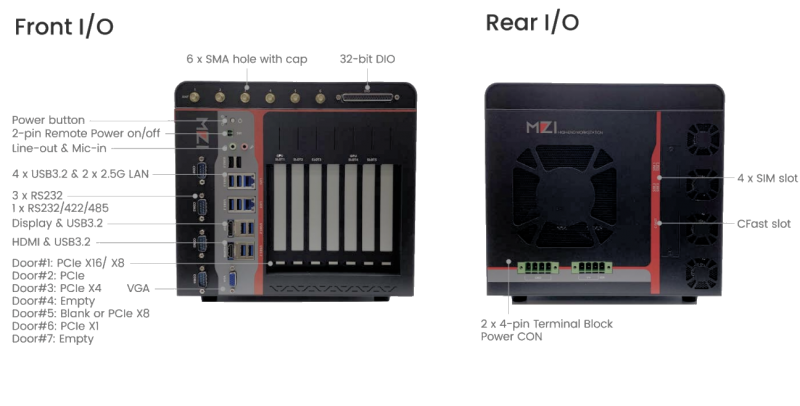
Multiplicité d'entrées / sorties
Le MZ1 propose une richesse incomparable d'IO avec un encombrement limité
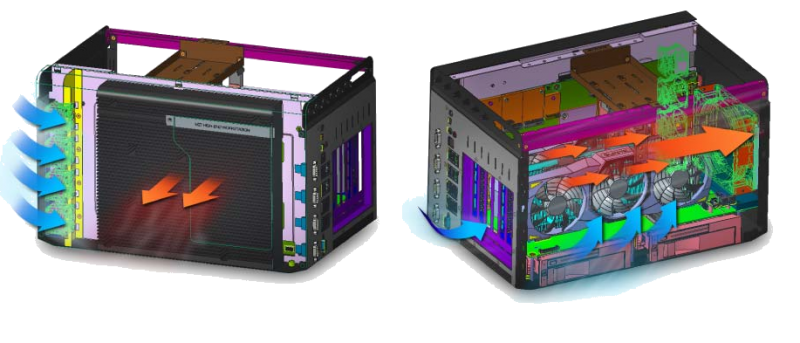
Une gestion thermique efficace
Chassis avec prise d'air étudiée pour un flux d'air jusqu'a 233 CFM
4 ventilateurs CPU + 1 ventilateur de chassis
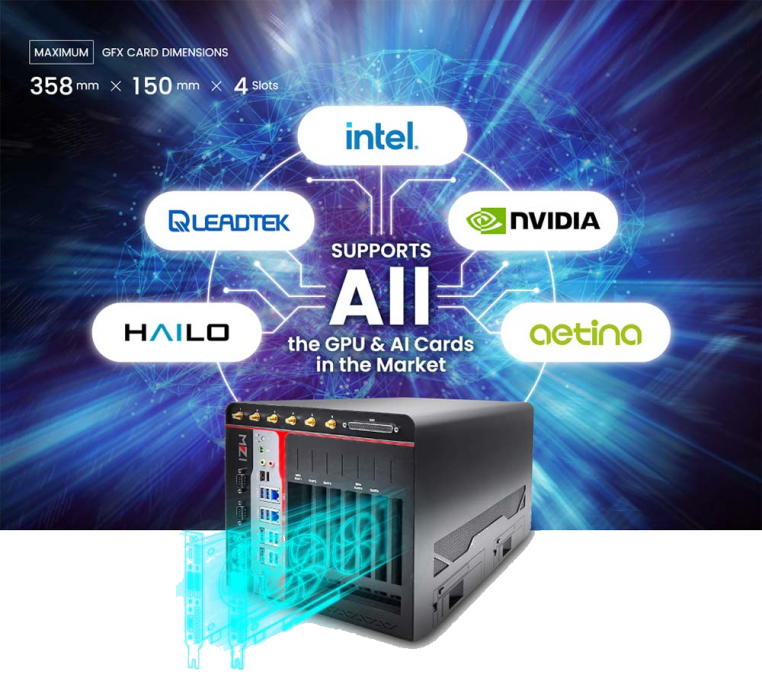
5 slots PCIe / 2 cartes RTX4090 /A40
Le MZ1 supporte l'installation de 5 cartes PCIe ou 2 cartes NVIDIA RTX4090
Le MZ1 accepte des cartes PCIe pour une dissipation maximale de 900 Watts








